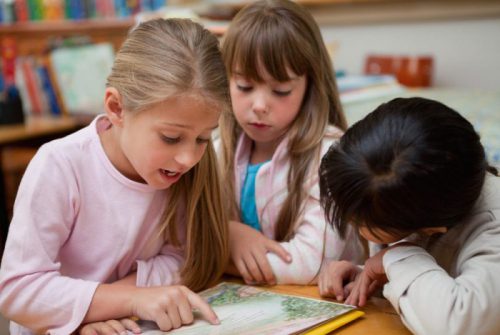
January 4, 2017, by Rupert Knight
Let’s talk about oracy
Literacy and numeracy are part of daily life for primary teachers, but in this post Rupert Knight explores what we mean by oracy and considers its possible impact.
What do we mean by oracy?
Put simply, oracy refers to skills related to talk and learning through talk. Between 1987 and 1993 the work of the National Oracy Project in England led to various publications and materials; more recently, useful resources have been available through the EYFS Every Child a Talker strategy and the Communication Trust . However, while awareness may have grown, the profile of oracy seems to have been diminished in subsequent policy directions and the current primary curriculum.
Building on the legacy of thinkers such as Vygotsky and Bruner, Robin Alexander, one of this country’s foremost proponents of high quality classroom talk has argued, as in this 2012 presentation, that we need to look beyond the superficial social function of talk to fully acknowledge also its cognitive impact.
Perhaps it is high time we rekindled this interest in talk. Indeed, very recently, Voice 21 published Speaking Frankly, a series of arguments in favour of oracy, along with a report: The State of Speaking in Our Schools. Among its findings were the high regard in which classroom talk is held by teachers but also the perceived lack of opportunity to promote this fully.
We asked Kathryn Woods, an Early Years teacher from Huthwaite All Saints C of E Infants School to tell us about the role of talk in her classroom.
Productive talk
While there are many forms of classroom talk, one potentially under-exploited form is peer talk. Lots of it goes on our classrooms, but how can we make it productive?
To take one aspect, writers such as Douglas Barnes and Neil Mercer have drawn attention to what they term exploratory talk as a form of joint reasoning or ‘interthinking’, as illustrated in this summary. Gains in both collaborative problem solving and individual reasoning through participation in lessons promoting exploratory talk are reported in this Thinking Together publication.
So what makes for productive peer talk?
• At a metacognitive level, ground rules need to be agreed. It’s all too easy to assume that pupils know how to collaborate but these are skills that need to be taught and exemplified through good models
• Initially, a well-chosen stimulus might capture children’s attention and provoke curiosity, as in this primary science example
• Above all, task design is all-important. Tasks need to be sufficiently challenging and structured in such a way that participation from the whole group is required for a successful outcome
To what extent are we able to make space for this kind of developmental and ‘provisional’ dialogue in today’s classrooms? The University of Cambridge’s Thinking Together website has many practical resources and ideas to address these points.
Oracy in practice
Finally, as we revisit oracy in more general terms, it is interesting to reflect on how these ideas might relate to current issues and initiatives. To take three examples:
• There is currently much interest in ‘mastery’ pedagogy in Mathematics lessons. In many ways, such lessons may indeed be language-rich in terms of both teacher and pupil talk. How easy is it, however, to allow space and time for genuine sustained exploration of ideas by pupils?
• As schools seek to close the attainment gap within their classrooms and pupil premium money is targeted to this end, what might be the role of peer talk? Certainly, the EEF toolkit suggests secure evidence for a positive impact from collaborative working but who does it benefit most and how might this be made as inclusive as possible?
• In light of current debates around excessive marking and its implications for workload, how could a greater focus on oracy create a classroom culture more conducive to other forms of feedback and improved peer and self-assessment?
As always, it would be great to hear about your thoughts and experiences.
No comments yet, fill out a comment to be the first

Leave a Reply